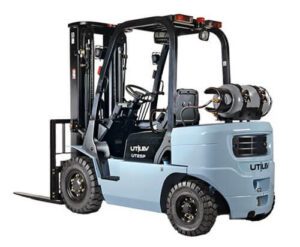
Forklifts
CanLift offers a selection of Forklifts for sale. Call us today at 1-877-338-5438 or contact us using the form – operators are standing by and we ship across Canada!
QUICK QUOTE
Your privacy is very important to us. We do not sell, share, or
distribute any of your personal information with any third parties.
Please read our privacy policy for more information
Buy or Rent a Forklift in Canada
If you’re looking for a forklift to purchase, lease or rent, CanLift can help. Not only do we offer competitive rates on our used and new forklifts, but our equipment is always available for quick delivery. If you expect to need an all-terrain forklift for many projects in the future, then our forklifts for sale are a great option. Renting a forklift truck from CanLift will save your business money on capital expenditures while still giving you access to the latest technology available today. Our team of forklift experts is here to answer all your questions and ensure that renting with us is as easy as possible. Start by exploring our current inventory of forklifts for sale or rent.
Find the Best Forklift Truck or Lift Equipment
CanLift is committed to providing fast and reliable delivery of the best forklift machines available. Our focus is always on customer satisfaction and helping our clients succeed – no matter if you are looking to rent a forklift for a week or upgrade your equipment to the latest forklift machine. We are proud of our reputation as an industry leader in product quality, service excellence and value-added solutions that meet your needs. Our team will help you find the best rough-terrain forklift or forklift truck for your needs.
Forklifts Available for Quick Delivery
You can count on CanLift to provide you with forklifts at competitive prices backed by exceptional service before, during and after your purchase or rental. We work with the leading manufacturers of forklifts to ensure we have a consistent inventory of the best indoor or rough-terrain forklifts, and our in-house service team will inspect all used forklifts before you buy them. Get a quote today on forklifts for sale or rent from CanLift.

Satisfaction is guaranteed.
Contact our sales and rental team today
for a free, no-obligation quote.
Frequently Asked Questions about Forklifts
What are forklifts typically used for?
Forklifts are essential machines widely used across industries for diverse tasks. In warehouses, they efficiently maneuver through aisles, handling the movement of goods on pallets and ensuring organized storage. Forklifts play a vital role in the distribution process by loading and unloading trucks, expediting the flow of products from production facilities to distribution networks. Manufacturing settings benefit from the adaptability of forklifts, as they transport raw materials between production stations and move finished products for storage or distribution. Construction sites rely on forklifts for lifting and transporting heavy building materials, contributing to the overall efficiency of construction operations. In the retail sector, forklifts aid in restocking shelves, ensuring a seamless shopping experience for customers in supermarkets and large retail outlets. Agricultural operations also leverage forklifts, using them to handle bulk produce and streamline the movement of crops from fields to storage facilities. Ports witness the versatility of forklifts as they load and unload containers onto ships, playing a pivotal role in facilitating international trade. Beyond physical handling, forklifts contribute significantly to inventory management in warehouses, ensuring accurate stock levels. Forklifts significantly contribute to inventory management within warehouse settings. These robust vehicles are equipped with advanced features that allow for precise tracking and organization of stock. The integration of technology has further enhanced the capabilities of forklifts in inventory control. Many modern forklift trucks come equipped with barcode scanners and RFID technology, enabling seamless tracking of products as they move through the supply chain. This not only enhances accuracy in inventory management but also streamlines the overall logistics process. In the realm of sustainability, forklifts are increasingly being recognized for their eco-friendly features. Many electric forklift models have gained popularity for their reduced emissions and quieter operation, aligning with environmentally conscious practices. Electric forklift equipment can help address environmental concerns but also aligns with the growing emphasis on sustainability within various industries.
What is the lift capacity of forklifts?
The lift capacity of forklifts varies based on their type and design. Generally, forklifts are categorized into classes that have a specified lift capacity. Class I forklifts, which are electric motor rider trucks, have a lift capacity ranging from 1,000 to 5,000 pounds. Class II forklifts, known as electric motor narrow aisle trucks, typically handle loads between 3,000 to 5,000 pounds. Class III forklifts, or electric motor hand trucks, are suitable for lighter loads, usually up to 3,000 pounds. Class IV forklifts are internal combustion engine trucks with cushion tires and can lift loads ranging from 8,000 to 12,000 pounds. Class V forklifts, also internal combustion engine trucks but with pneumatic tires, have a higher lift capacity, usually between 13,000 to 36,000 pounds. For heavier applications, Class VI and VII forklifts are designed for rough-terrain and construction environments and can handle loads exceeding 6 tons. It is important to note that the lift capacity specified is a crucial safety factor. Exceeding the recommended capacity can lead to instability, causing accidents or damage. Understanding the lift capacity of a forklift truck and matching it to the weight of the loads you'll be handling is essential for safe and efficient operations in various industrial settings. Always check the forklift's specifications and adhere to the recommended guidelines to ensure a secure working environment. Each forklift truck model comes with a load capacity chart provided by the manufacturer. This chart outlines the maximum load capacities at various load centers and fork lengths, offering detailed information for safe operation. Regular training for forklift operators, emphasizing load capacity awareness and adherence to manufacturer guidelines, helps maintain a safe workplace.
Are forklifts easy to use?
Yes, with proper training, forklifts are easy to use. Forklifts are designed with the operator in mind and safety features in place to ensure ease of use. These features include sturdy overhead guards to protect operators from falling objects and seat belts to secure them during operation. The controls are straightforward, with a steering wheel, pedals for acceleration and braking, and levers for lifting and lowering loads. The design of forklift trucks prioritizes visibility, allowing operators to have a clear view of their surroundings. This is crucial for avoiding accidents and ensuring safe maneuvering. Many forklifts also come with ergonomic features, like adjustable seats and easy-to-reach controls, promoting operator comfort during long shifts. To operate a forklift, one typically needs to obtain a forklift certification. This certification involves training on the safe operation of forklift trucks, understanding their controls, and learning about workplace safety regulations. The certification process ensures that operators are knowledgeable about the equipment and capable of using it safely. Forklift trucks are designed with ease of use in mind. With simple controls, safety features, and operator training, forklifts are accessible for those with the necessary qualifications.
Is it better to lease or buy a forklift?
Both leasing and buying forklifts are better for different reasons. Leasing or buying a forklift depends on factors such as ownership preferences, budget constraints, and future plans. If ownership and long-term savings are most important, buying may be the preferred option. If lower initial costs and flexibility are priorities, leasing could be the more suitable choice. Deciding whether to lease or buy a forklift truck hinges on your business requirements and financial circumstances. When considering purchasing a forklift, it means acquiring ownership of the equipment. While the upfront cost may be higher, this approach offers long-term investment benefits, providing a sense of asset security with no restrictions on usage. Customization and modifications are also possibilities, and over time, buying can prove more cost-effective. However, the initial purchase cost might strain immediate budgets, and maintenance responsibilities fall on the owner, potentially incurring additional expenses. Leasing a forklift involves renting the equipment for a predetermined period with fixed monthly payments. The lower initial costs make leasing more financially accessible, and many leases include maintenance coverage to alleviate the burden of additional expenses. Flexible upgrade options are another advantage, allowing for easy transitions to newer models. Nevertheless, leasing means no ownership at the end of the lease term and there may be restrictions on usage or modifications. Over an extended period, leasing can become more expensive than buying.
Should I buy a used forklift?
Buying a used forklift can be a smart choice if you're on a budget. Used forklifts are generally more affordable than brand new ones, allowing you to save money. However, it's important to carefully inspect the used forklift truck and ensure it meets safety standards before buying. Prior to purchasing a used forklift, it is a good idea to check the maintenance records of the forklift truck to ensure it has been well cared for. A well-maintained forklift is likely to have a longer lifespan and fewer potential issues. Inspect the forklift for visible wear and tear, paying attention to the tires, forks, and hydraulic systems. Consider the usage history of the forklift, as heavy or continuous use may impact its overall condition. Test the forklift's functionality, including its lifting capacity, to ensure it meets your specific needs. If possible, get a professional inspection to identify any potential problems. Yes, buying a used forklift is a good idea if the truck can meet your needs. While buying a used forklift can save you money, it's crucial to weigh the cost savings against the potential risks. If you do your research, inspect the forklift truck thoroughly, and verify its maintenance history, a used forklift can be a reliable and cost-effective choice for your business needs.


